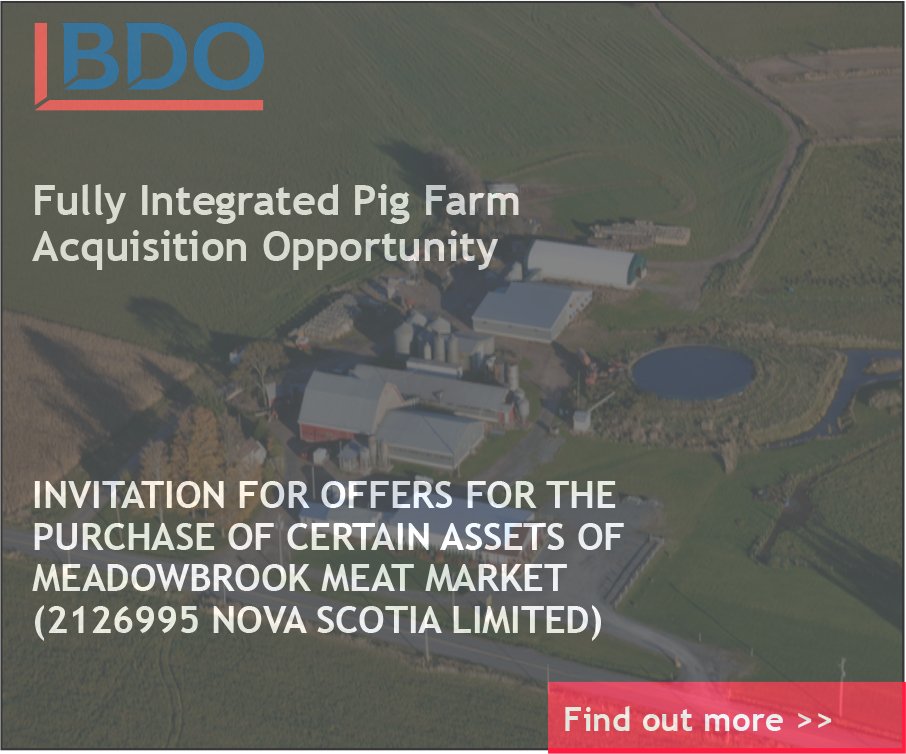On a mission from pasture to plate
/The MacEachern family of Ashcroft Angus Farms, from left, Lisa, Danielle, Vaughn, Emily, and Scott. (Contributed photos)
by Alisha Johnson
Lisa and Scott MacEachern have a mission to provide Nova Scotians with plenty of quality, locally sourced beef, the need for which has been amplified even more by the pandemic.
Since their family farm, Ashcroft Angus Farms in Bailey’s Brook, Pictou County, N.S., was founded in 2015, they’ve been doing just that.
“We naturally raise 100 percent Canadian Black Angus cattle, producing premium Black Angus beef for Nova Scotians,” said Lisa, who graduated in 1993 with a biotechnology diploma from the former Nova Scotia Agricultural College (now Dalhousie University’s Agricultural Campus). “And we stand behind our tagline: ‘Premium. Pasture to Plate.’”
Naturally, consumers are conscientious about their beef consumption and want it to come from humane, sustainable, and hormone-free environments. The purebred herd of more than 80 head at Ashcroft Angus Farms roams pastures spanning more than 1,000 acres. The cattle are also fed oats, hemp, and haylage grown on the farm. No hormones or antibiotics are added to the feed.
“Daily, from April to November, we follow a carefully constructed plan, keeping our pastures at their highest nutritional quality for the herd,” said Scott. Lisa said Scott has that plan down to a science.
The cattle are kept outside most of the time in the winter as well.
“You name a possible wind direction, and the herd will be fine,” said Lisa. “Black Angus are an amazing breed in the elements, knowing just where to head for shelter in the storms and when to head for hay or a drink.”
The MacEacherns have three children: Emily, 23, Danielle, 22, and Vaughn, 19. Emily is a St. F.X. University graduate, and Danielle and Vaughn both attend St. F.X. All three help out on the farm and Danielle and Vaughn work full time on the farm from May 1 to Sept. 1.
During the winter months, the family feeds several bales, each weighing more than one ton, every few days, depending on the severity of the weather. When the ground is not frozen, the MacEacherns regularly move the feeders around so the herd has good footing. Danielle and Vaughn are on call for refilling feeders, which is a 1 1/2-hour chore.
In the spring, Lisa and Scott look forward to getting their herd onto the pasture as soon as possible. As in the winter, the cattle are equally intelligent come calving season and need little help from the MacEacherns.
“Other than finding the youngsters and tagging them, the mothers do all the work,” said Lisa.
Fences must be mended in the spring, and Danielle and Vaughn do most of that work.
Scott and Lisa admit that the six horses and hens, which also call Ashcroft home, take up more of their time and effort than the cattle. But being fairly self-sufficient leaves more time for the MacEacherns to focus on the cattle’s health.
The cattle on Ashcroft Angus Farms are kept on pasture as long as possible. The MacEacherns have their pasture rotation plan down to a science.
“Every day, year-round, our processes are focused on the overall health of our livestock, from feeding and watering to cleaning and moving,” said Scott.
A herd health day takes place annually in June. “Part of the pasture is turned in to a large clinic and we perform all herd health in the one day,” said Lisa. “This is often the only time the vet is needed.”
It’s one of the longest days of the year, spent entirely in the pasture with the herd – from dawn to dusk. For the past couple of years, the entire family, along with friends of the MacEachern children, have been on site to help.
Along with herd health, sustainable animal agriculture is a priority for the MacEachern family. They believe it’s vital when considering ethical meat consumption.
“The term sustainable agriculture entails that the animal’s life is valued by the farmer,” said Lisa. “We can see this in the quality of the beef when compared to an animal that consumes a high-grain or corn diet as opposed to a diet high in green grass.”
“On our farm, an animal’s life is not taken until there is a customer who requests it and is prepared to consume the meat,” said Scott, adding that the practice eliminates waste and ensures the meat is fresh and nutrient dense. “It’s quality over quantity for us.”
The whole family believes in these practices.
“If agriculture continues to exist, consuming beef in a sustainable way is the only method,” said daughter Emily. “Integrity ensures that nothing is wasted, morals are considered, and beef is of quality.”
Owning and operating Ashcroft Angus Farms alongside their children is a dream come true for Lisa and Scott. High school sweethearts, the couple ran a successful aquaculture operation, growing Rainbow trout, for many years. But Scott, raised on a farm, and Lisa, who attended the NSAC, always wanted to have a family farm.
“Family farming keeps the family in touch with their herds, crops, nature, and each other,” said Lisa. “The farm life puts a unique perspective on life each and every day. We wouldn’t have it any other way.”
Lisa and Scott are members of the Canadian Angus Association and are active in the farming community in their area. They are committed to advocating for Nova Scotia agribusiness, providing Nova Scotians with premium quality beef, and having strong relationships with their customers.
(Alisha Johnson is the alumni relations manager at Dalhousie University’s Faculty of Agriculture.)












